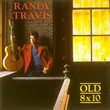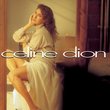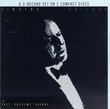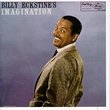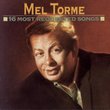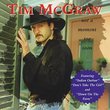| All Artists: Chicago (Band) Title: Xiii Members Wishing: 2 Total Copies: 0 Label: Chicago Records Release Date: 2/28/1995 Album Type: Original recording reissued Genres: Pop, Rock, Classic Rock Styles: Adult Contemporary, Soft Rock, Album-Oriented Rock (AOR) Number of Discs: 1 SwapaCD Credits: 1 UPCs: 074643610544, 090204775927, 703404301321, 703404301345 |
Search - Chicago (Band) :: Xiii
 | Chicago (Band) Xiii Genres: Pop, Rock, Classic Rock
|
Larger Image |
CD DetailsSimilarly Requested CDs
|
CD ReviewsChicago Does DISCO??? Gord o' The Books | 10/09/1999 (4 out of 5 stars) "This is a funny one. The first time I heard this, I was APPALLED. By 1979 I was sick & tired of the boring monotony of songs with disco beats--and to hear yet another of my favorite band stoop to doing a song with one, in this case, the lengthy "Street Player", was too much. I didn't play it again for another 6 months. After 2 years, however, it surprised me--I started to LIKE it! Once the "fad" had died, I noticed that the "regular" bands who'd decided to try their hands at it had actually done BETTER work than the full-time (and short-lived) "Disco bands". "Street Player" became one of my favorite Disco songs! And frankly, the rest of the album turned out to be far better than HOT STREETS-Donnie Dacus or not. (In photos, the guy just looked SO out-of-place--like a Peter Frampton "clone" amid musicians of an entirely different caliber.) Peter Cetera does more than his share of vocals this time out, yet none of his later trademark "sappy ballads" this time. Instead, upbeat mid-tempo rockers ("Mama Take", "Life Is What It Is" and "Run Away"--the latter would have made a cool single) and a song that sounds like it stepped out of a New Orleans Mardi Gras ("Aloha Mama"). On this and "Window Dreamin'" (Walter Parazaider & Lee Loughnane's contribution, probably the most offbeat rhythm on the album) Cetera warps his voice to become "P.C. Moblee"-whoever THAT'S supposed to be. And Robert Lamm's catchy "Reruns" talks of regrets following infidelity. All-in-all, I've enjoyed this more and more as the years go by-something I never expected. And being big into architecture, the skyscraper cover has long been one of my favorites by the group!" Chicago's Second White Album Gord o' The Books | SE Michigan | 06/19/2006 (3 out of 5 stars) "In Chicago 13, every member gets a writing credit. Phil Ramone implements a "democratic" approach to production, resulting in this buffet of 8 different styles on one album. It took me 20 years to truly appreciate this album. I love to play and listen to it. But I give it 3-stars because these are supposed to be reviews that should help prospective buyers. I have seen, heard, and read reviews on this album ever since it came out, and I do not want to take a chance on somebody buying this and being disappointed. One wonders what would have happened had Donnie Dacus stayed with the band. I saw them live at the time, and I think his inappropriate stage behavior was a main reason why he had to go. He seems to be finding his niche on this album, only to have it taken away. His in-your-face guitar solo, as the final cut "Runaway" fades, is an effective closure to his tenure with the band. There are interesting and career-topping instrumental moments on this album, like Lee Loughnane's muted trumpet in Aloha Mama, and James Pankows trombone solo in Life Is What It Is. Man, how I'd love to give this 4-stars. Nevertheless, I would only recommend that confirmed Chicago fans buy this CD. Or - - - if you are willing to sit down and listen to it, maybe 20 times, before making a judgment, then yes, buy it. Oops! I forgot about "Closer To You" on the re-issue! This classic rock-jazz Chicago song features a cool Lee Loughnane solo. The addition of this song makes it a near ideal Chicago album, and raises it one star, (which I will do when the edit function allows me to do so!)" Unlucky number for Chicago Russell K. Simpson | 07/21/2001 (5 out of 5 stars) "Chicago has evolved - just like other groups. This particular album showcases where Chicago's respective mind was at in 1979. (Chicago 14 is another favorite of mine - before the David Foster influenced / Peter Cetera hogging the spotlight years.) 13 was an unlucky number for Chicago (as was 14, I guess) and they shouldn't have been. Some of their best work, in my opinion, can be heard on these two albums. As for Chicago 13, yes it is Chicago meets Disco, but only on some songs, not all of them. Personally, I think Chicago was meant to do disco and they do it well on this album. I mean, with the Chicago sound (those magnificent horns led by the wonderful Jimmy Pankow), disco never sounded better. The Chicago horns and the disco beat is a perfect blend. It works! However, this is not "Boogie, Oogie, Oogie" type disco, this is tremendous dance and horn music such as that offered by the equally talented Average White Band. So, I just don't get all of the bad reviews. Bands and artists do not want to put out carbon copies of the albums they just did before. That would be boring. Chicago 13 and 14 prove just how talented and versatile Chicago, as a group, really is. Another thing I like about this album is it spotlights the Chicago horn section, something that was lost in later Chicago efforts when David Foster took over and the horns served as backup to Cetera's ballads. This album is still a group effort. How anyone could not like the infectious "Street Player" which is over nine minutes of superb guitar work and horn playing is way beyond me!"
|

 Track Listings (10) - Disc #1
Track Listings (10) - Disc #1